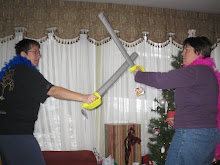I have thinking about our communication challenges. Our public services for post-stroke or trauma aphasia are unfulfilling and many people with aphasia don't have the help they need for read fluently and comprehend the content.
After I "graduated" from Rehabilitative Centre, I contacted a private speech language pathologist to help with my recovery. Betsy Allard customized a program for me that included speech, writing practice and reading fluency and comprehension. When I was ready for a book, she gave me Tell No One Who You Are to read...first with a recording...she actually records the book in your voice and a tempo that I understand....actually, she recording the book AND rerecording it, because I thought it was too fast! That took all of her time!
But, she knew that if I had problems with comprehension it could be that the recording was too fast for my auditory cortex processing and I would struggle to keep up her voice. For me to have success with reading, I need to be relaxed....no distractions, noise. AND, I needed to follow the words, so when Betsy read in the recording, I pointed at them in the book with my "reading finger". I found that to be helpful. IF you use a recording to teach yourself to read, make sure that it is the right speed for YOU.
Remember, the movie "The Reader"? It was about a woman who couldn't read, but loved literature...to make a long story short...she learned to read in jail with books and recordings from a friend. Patience and practice!
The book that Betsy assigned for me was perfect! A good story, font that was large (not "large print", but big enough that I didn't need a magnifier) and language that wasn't complex. At the middle of the book, I found that I even need the recordings anymore. "Our" strategy was that each day, I would tackle a new chapter....listening to the recording made by Betsy and following along in the book. Slower enough for me to follow with ease without feeling frustrated and stressed struggling to keep up with voice!
Then, when the chapter was done, I read the chapter myself aloud following with my "reading finger". After I finished reading the chapter, my other assignment was to write a summary of the chapter and email it to Betsy. Betsy corrected it and emailed back to me. Then I correct my language and grammar and sent it to Betsy again. The time that Betsy came for our "face to face" session, we discuss the problems of my writing.
THEN, she asked me questions about the chapter, so I could practice formulating my thoughts and she could see if I understood the content...the story.
Sounds time consuming and hard work, but we did that many years ago when we were kids!
